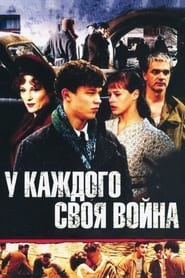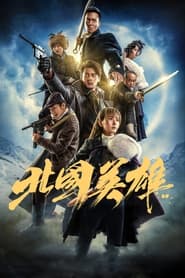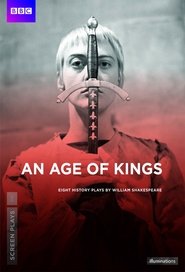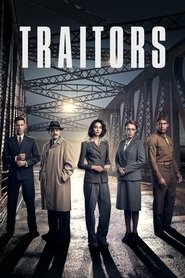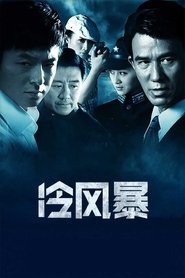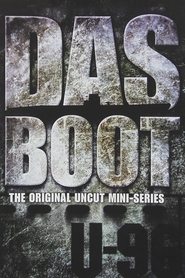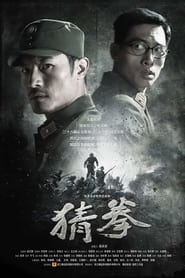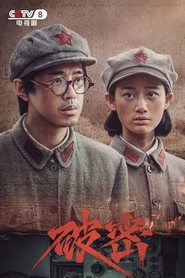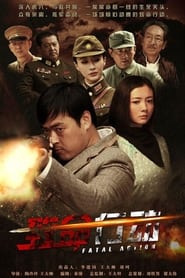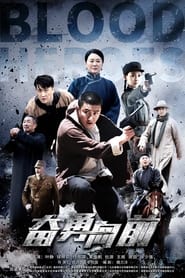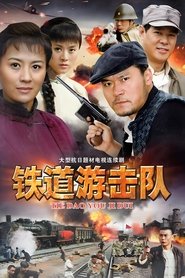Popular War Politics TV Series - Page 33
-
Everyone Has Their Own War
2010
star 10The story of the teenage love of a schoolboy Robert to Milka, the girlfriend of the ataman of the Zamoskvoretsky punks. The background for this romantic line is the stories of neighbors, communal intrigues, war memories — everything that is so familiar to the post-war generation of Muscovites. -
The Snow Queen
2018
The Snow Queen
2018
-
Jericho
1966
Jericho
1966
star 6.5Jericho is an American espionage series set during World War II. The series stars John Leyton, Don Francks and Marino Masé as secret agents, and aired on CBS from September 1966, to January 1967. -
An Age of Kings
1960
An Age of Kings
1960
star 4.7A linking together of Shakespeare's history plays — Richard II, 1 Henry IV, 2 Henry IV, Henry V, 1 Henry VI, 2 Henry VI, 3 Henry VI, and Richard III — chronicling the rise and fall of monarchs over the 86 years between Richard II and Richard III. -
天阵
2010
天阵
2010
-
Traitors
2019
Traitors
2019
star 6.31945 London. Feef is seduced by a rogue American spy into spying on her own country. Her task? To uncover a Russian agent in the heart of the British Government. -
冷风暴
2012
冷风暴
2012
-
Washington Week with The Atlantic
1967
star 9.5Journalists participate in a round-table discussion of news events in this award-winning public affairs series. It first aired in 1967, making it the longest-running prime-time news and public affairs program on television. -
The Eternal Wave
2010
-
Hong Niang Zi
2012
Hong Niang Zi
2012
-
尖刀队
2012
尖刀队
2012
-
نابليون والمحروسة
2012
نابليون والمحروسة
2012
-
Das Boot
1985
Das Boot
1985
star 8.6Based on an autobiographical novel by German World War II photographer Lothar-Guenther Buchheim, Das Boot follows the lives of a fearless U-Boat captain (Jurgen Prochnow) and his inexperienced crew as they patrol the Atlantic and Mediterranean in search of Allied vessels, taking turns as hunter and prey. -
AMAIM: Warrior at the Borderline UltraSteel Ogre-Gear
2023
star 7.2New entry in the Kyoukai Senki franchise. -
猜拳
2015
猜拳
2015
-
破密
2024
破密
2024
In the late 1920s, Cai Zekang, from a prominent Ningde family, moved to Shanghai to study at Tongji University while secretly seeking Communist Party connections. After confirming his membership, he adopted the alias Cai Wei and was tasked with establishing a radio station in the Eyuwan Soviet area. There, he set up communications for the Red Fourth Front Army and trained new operators, using his mathematical skills to provide vital intelligence that supported the Red Army's efforts during a critical period. -
Al Zahir Baybars
2005
Al Zahir Baybars
2005
The life and exploits of al-Zahir Baibars, Sultan of Egypt and the Levant, his journey from being a slave to Prince Ala’ al-Din al-Bunduqari, until he became sultan, and the many important events he was involved in, like the fall of Baghdad at the hands of Mongol commander Hulagu Khan, and the battle of Ain Jalut. -
致命行动
2015
致命行动
2015
-
Blood Heroes
2020
Blood Heroes
2020
-
Railway Guerrilla
2005
Railway Guerrilla
2005
 Netflix
Netflix
 Amazon Prime Video
Amazon Prime Video
 Apple iTunes
Apple iTunes
 Apple TV Plus
Apple TV Plus
 Disney Plus
Disney Plus
 Google Play Movies
Google Play Movies
 Paramount Plus
Paramount Plus
 Hulu
Hulu
 HBO Max
HBO Max
 YouTube
YouTube
 fuboTV
fuboTV
 Peacock
Peacock
 Peacock Premium
Peacock Premium
 Amazon Video
Amazon Video
 The Roku Channel
The Roku Channel
 AMC+
AMC+
 Kocowa
Kocowa
 Hoopla
Hoopla
 The CW
The CW
 Vudu
Vudu
 Starz
Starz
 Showtime
Showtime
 PBS
PBS
 Pantaflix
Pantaflix
 FXNow
FXNow
 Tubi TV
Tubi TV
 Kanopy
Kanopy
 Comedy Central
Comedy Central
 Crunchyroll
Crunchyroll
 Microsoft Store
Microsoft Store
 Redbox
Redbox
 Sun Nxt
Sun Nxt
 ABC
ABC
 DIRECTV
DIRECTV
 Crackle
Crackle
 Fandor
Fandor
 Plex
Plex
